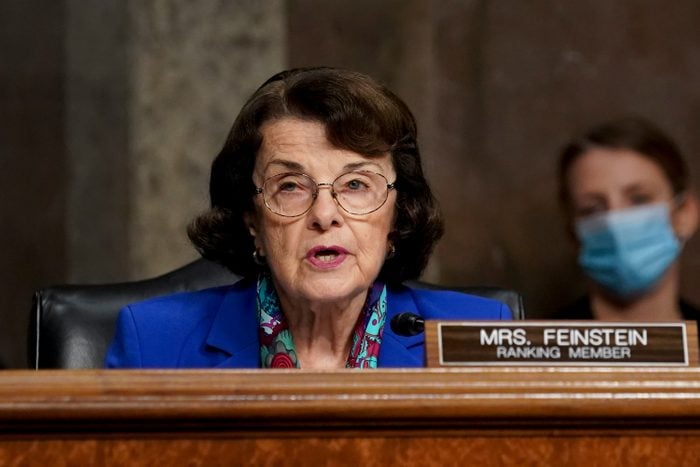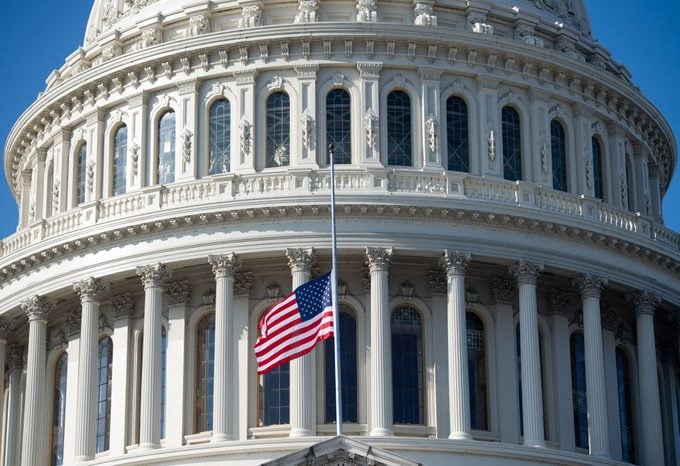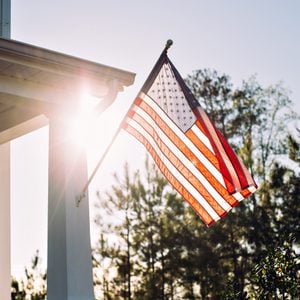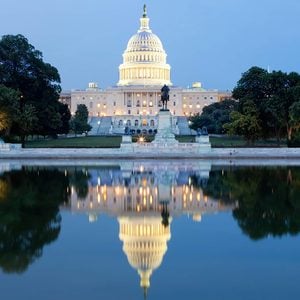What Happens When a Sitting Senator Dies?
Updated: Sep. 29, 2023

The death of longtime Senator Dianne Feinstein has left the nation in a state of mourning. But what happens next?
Democratic congresswoman Dianne Feinstein, who served as a U.S. Senator from California for more than three decades, died on Thursday night on the heels of several serious health issues. At the time of her death, Feinstein, 90, was California’s senior senator, the oldest member of Congress and was still serving her sixth term, which has many asking, what happens when a senator dies?
A highly influential voice in national politics since she was elected mayor of San Francisco in the 1970s, Feinstein held seats on the highly influential Senate Judiciary Committee and the Senate Intelligence Committee. She was a self-described political centrist, supported both same-sex marriage and the death penalty, and in terms of commonsense gun laws, Feinstein was in favor of raising the minimum purchasing age.
With her regal composure and conservative manner of dress, Feinstein was sometimes compared to Queen Elizabeth II. And like that of the late monarch, Feinstein’s “seat” will be a formidable one to fill. So where does that leave us today? Let’s take a look at what happens when a sitting U.S. senator dies.
The senator’s seat in Congress will be appointed
The 17th Amendment to the U.S. Constitution governs the election of senators and also applies to the filling of vacant Senate seats. It accords broad power to state legislatures to determine the manner in which that is to be done. According to Patricia Crouse, PhD, a professor of political science at the University of New Haven, 37 of the 50 U.S. states empower their state governors to appoint a replacement for the remainder of the term or until a special election can take place. California is one of those states.
Indeed, the current California governor, Gavin Newsom, appointed a replacement for a vacant seat when Kamala Harris became vice president and vacated her U.S. senate seat in California in 2021. Likewise, “Newsom has full discretion to appoint Feinstein’s interim successor,” says Crouse. Moreover, since Feinstein had made public her plan to retire in January 2025, a number of Democratic hopefuls were already beginning to clamber for the seat.
Senate committee vacancies will be filled
What happens when a senator dies and they are members of various influential committees? The death of Senator Feinstein left vacancies on both the Senate Judiciary Committee (which provides oversight of the Department of Justice and its agencies) and the Senate Intelligence Committee (where Feinstein regularly reviewed intelligence reports and budgets and participated in committee investigations). As is protocol, these seats are to be filled by the Senate Majority Leader (Chuck Schumer), but will require full chamber approval.
Flags will fly at half-staff

Whether American flags are to be flown at half-staff in honor and remembrance of a deceased public figure is a decision to be made by the U.S. president at the national level and the governor at the state level. Crouse predicts that flags will be flown at half-staff on both the federal and state level, similar to what happens when a president dies and when a Supreme Court justice dies. “That’s normal procedure when someone connected to the government dies.”
The senator’s chair will be draped in black crêpe
The process of honoring Senator Feinstein’s legacy is already underway in congressional chambers. According to Crouse, Feinstein’s seat in the Senate chamber has already been draped with black crêpe and adorned with flowers. And from the Senate floor, Senator Schumer spoke of how Feinstein’s work had changed America for the better, before calling for a moment of silence in the late senator’s honor. In the House, Representative Nancy Pelosi also led a moment of silence to honor Feinstein’s legacy, which Pelosi said will be “a long one that we will all be inspired by.”
The senator’s family will make funeral arrangements
Protocol holds that the family of the deceased has a significant say in the funeral arrangements, including where the proceedings will take place and who will be invited to attend, including former presidents and international dignitaries.
In the case of other influential U.S. senators, such as John McCain, Bob Dole and Harry Reid, the funerals consisted of large services at Christian churches, and all were preceded by a period of lying in state at both the Capitol and in the Senator’s home state (lying in state refers to the body being present in a closed casket with an American flag draped over it). Since Feinstein was Jewish, it’s not yet known what to expect of her funeral or whether it will be preceded by a period of lying in state. However, Crouse predicts that, overall, the proceedings may be more private. “I don’t think you’re going to see the same type of public display as with these other three.”
The government shutdown could affect plans
What happens when a senator dies with a looming governmental shutdown? Well, a few things could be affected. First, there’s a lot of talk about Newsom expediting the appointment of Feinstein’s interim successor. Moreover, it’s possible a shutdown could interfere with the swearing in of an interim senator, although Crouse believes it won’t likely come to that. What she can say for certain is that the appointment of an interim senator during governmental shutdown is a situation entirely without precedent. “The next few weeks should certainly be interesting,” she says.
The occurrence of a governmental shutdown could also affect the funeral arrangements, particularly those set to take place in Washington, DC, notes Crouse. “If the government shuts down, it’s possible there won’t be enough security on hand” for some of the arrangements we’ve been talking about. “In fact, a number of government agencies would be involved in the process, and in the event of a shutdown, very few will remain open.” What the family may, in fact, do in any event is to plan a private funeral “separate from all the public stuff.”
About the expert
- Patricia Crouse, PhD, is a professor of political science at the University of New Haven.
Sources:
- New York Times: “Death of Dianne Feinstein”
- New York Times: “Dianne Feinstein, 90, Dies; Oldest Sitting Senator and Fixture of California Politics”
- U.S. Senate: “Landmark Legislation: The Seventeenth Amendment to the Constitution”
- Dianne Feinstein: “The Intelligence Committee”



